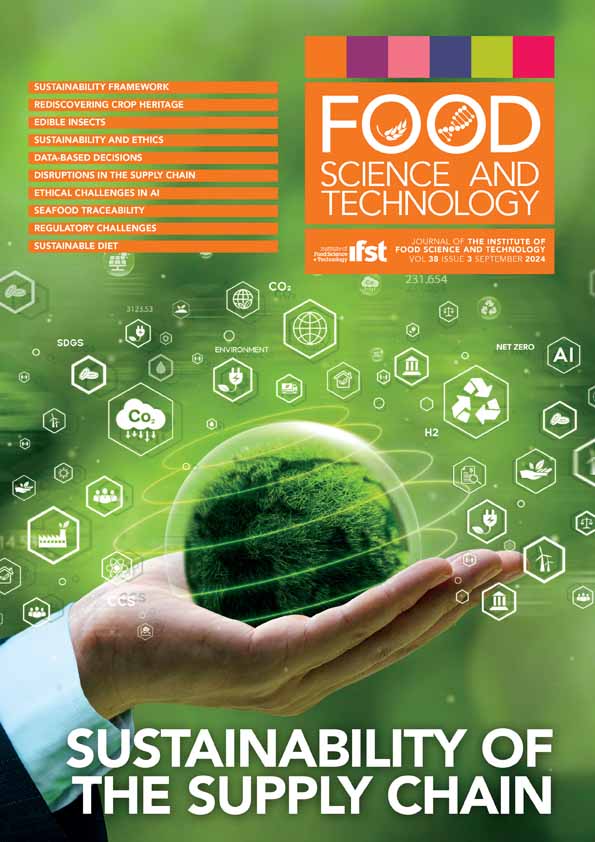Cryoprotective effect of low molecular-mass nitrogen compounds on the myofibrillar protein of the jumbo squid (Dosidicus gigas) muscle
Q2 Agricultural and Biological Sciences
引用次数: 0
Abstract
The study aimed to evaluate the low molecular-mass nitrogen compounds (LMMNC) arginine (Arg), taurine (Tau), and trimethylamine oxide (TMAO) (individually or their mixtures) cryostabilizing effect over jumbo squid (Dosidicus gigas) myofibrillar protein (JSMP) frozen at -20°C for 0, 30, and 90 days. Washed muscle (three times, 1:3, muscle:water) was lyophilized (sample). Washing water was ultrafiltrated (<1 kDa cut-off) and permeate lyophilized (<1 kDa fraction). LMMNC, Control+ (with <1 kDa fraction)] added at muscle concentration and control (washed-muscle only) were stored at -20 °C. Cryoprotective effect on JSMP was evaluated by differential scanning calorimetry, surface hydrophobicity (SoANS), solubility, and total-sulfhydryl (TS) content. Myosin thermal stability increased (P ≤ 0.05) in Control+ (43.6 ± 0.1), TMAO (44.3 ± 0.3), and Arg + TMAO (44.2 ± 0.9) compared to Con (42.6 ± 0.3) before freezing (day 0). At 90 days of storage, all TMAO-involved treatments and Control+ remained higher (p ≤ 0.05) than Control. Solubility increased (p ≤ 0.05) in Tau (11.2±0.0-12.8±0.1) and Arg+Tau (10.6±0.1-12.7±0.0) comparing day 0 vs. 90, respectively. LMMNC reduced SoANS (p ≤ 0.05, Arg+Tau+TMAO) throughout storage. LMMNC reduced (p > 0.05) TS in most treatments. LMMNC, especially Taurine and TMAO, protects JSMP from freezing denaturation, stabilizing its structure.低分子质量氮化合物对巨型鱿鱼(Dosidicus gigas)肌肉肌纤维蛋白的低温保护作用
该研究旨在评估低分子质量氮化合物(LMMNC)精氨酸(Arg)、牛磺酸(Tau)和氧化三甲胺(TMAO)(单独或它们的混合物)对巨型鱿鱼(Dosidicus gigas)肌纤维蛋白(JSMP)在 -20°C 下冷冻 0、30 和 90 天的低温稳定效果。将洗净的肌肉(三次,1:3,肌肉:水)冻干(样品)。在大多数处理中,洗涤水都经过超滤(0.05)TS。LMMNC,尤其是牛磺酸和 TMAO,可保护 JSMP 免受冷冻变性,稳定其结构。
本文章由计算机程序翻译,如有差异,请以英文原文为准。
求助全文
约1分钟内获得全文
求助全文
来源期刊

Food Science and Technology
农林科学-食品科技
自引率
0.00%
发文量
0
审稿时长
12 weeks
期刊介绍:
Information not localized
 求助内容:
求助内容: 应助结果提醒方式:
应助结果提醒方式:


